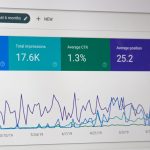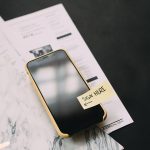Getting Started with the F1 Visa Application Process: A Complete Guide The F1 visa is a vital first step for foreign students hoping to pursue their studies in the US. If you want to pursue your academic goals in America, you must be aware of the complexities involved in applying for an F1 visa. Obtaining the required paperwork, which consists of a valid passport, evidence of financial support, and an acceptance letter from an institution recognized by the Student and Exchange Visitor Program (SEVP), is the first step in the trip. The Form I-20, which is provided by the educational institution and acts as a certificate of eligibility for nonimmigrant student status, must also be completed by applicants.
This document, which verifies that the student has been admitted into a full-time course of study and provides program details, is essential. The Student and Exchange Visitor Information System (SEVIS), which keeps track of international students, is funded by the SEVIS fee, which applicants must pay after obtaining the necessary paperwork. The subsequent procedure entails completing the DS-160 form, an electronic application for a nonimmigrant visa that necessitates comprehensive personal data, past travel records, and educational background. Upon filing the DS-160, candidates need to arrange a visa interview at a U.S. S.
ambassadorial or consular. Because it necessitates close attention to detail and strict adherence to guidelines, this process can be intimidating. One can considerably increase their chances of receiving an F1 visa by thoroughly understanding these steps. Getting an appointment for an F1 visa interview can be one of the trickiest parts of the application procedure. It is imperative to move quickly & wisely because student visas are in high demand, particularly during the busiest application seasons.
First things first, applicants should visit the website of their local U. S. embassy or consulate for detailed guidelines regarding interview scheduling. Numerous embassies have put in place an online appointment booking system that enables candidates to check available times and schedule their interviews appropriately.
Slots fill up quickly, especially in the months preceding the academic year, so it’s best to check this system often. Applicants should think about scheduling flexibility in addition to keeping an eye on appointment availability. Being flexible with times and dates can help you get an interview sooner if that’s possible. In certain situations—like an urgent need for academic work or unanticipated delays—some embassies might provide expedited appointments. As a result, it is advantageous to become familiar with these policies & gather any supporting materials for requests for expedited processing.
Candidates can more skillfully negotiate the frequently confusing world of scheduling visa interviews by being proactive & adaptive. Recognizing the Value of Planning. To get a good result, you have to prepare for the F1 visa interview. Among the best approaches is to carry out in-depth research on the school and course of study. Understanding the curriculum and requirements of the particular program, as well as the institution’s values, mission, and academic atmosphere, is necessary for this.
Looking into the Academic Setting. The ability to explain why they selected a particular school and how it fits with their academic and professional objectives is a key skill for applicants. This lets the consular officer know that the applicant is serious about pursuing acceptable educational opportunities in the U.S. and shows commitment.
S. Gaining insight into the academic & cultural milieu of the organization can offer significant background information during the interview process. Getting Ready to Respond to Frequently Asked Interview Questions.
Rehearsing answers to frequently asked interview questions is another essential part of getting ready. Candidates should expect questions about their financial status, ties to their home country, and post-study plans. Because consular officers are trained to evaluate an applicant’s credibility and intentions, it is imperative that you communicate confidence & clarity in these responses. Reducing anxiety and improving communication skills can both be achieved through mock interviews conducted with friends or family. Arranging the Necessary Documents.
Moreover, keeping all necessary paperwork in one place in a folder can show preparation and expedite the interview process. This involves making certain that all required records, including financial statements, test results, and transcripts, are current and simple to obtain. An applicant’s chances of getting through an F1 visa interview are improved by being well-prepared. Success in the F1 visa application process depends on avoiding common mistakes, which can be challenging to navigate.
One common mistake is filling out forms like the DS-160 or Form I-20 with incomplete or inaccurate information. For consular officials, contradictions or omissions can raise red flags and result in delays or denials. Thus, it is crucial that applicants verify all entries are accurate the second time around and make sure all necessary paperwork is sent in together.
Candidates should also exercise caution when it comes to lying about their financial status, as doing so can have serious repercussions, such as being prohibited from applying for visas in the future. Undervaluing the significance of proving connections to their native nation is another error that applicants frequently make. Consular officials require confirmation from applicants that they plan to finish their education and return home.
When strong ties, like family ties, property ownership, or employment prospects, are not demonstrated, it can raise questions about the applicant’s motivations. In order to reduce this risk, candidates should have supporting documentation that demonstrates their ties to their native nation ready for discussion during the interview. If you’re having trouble getting an interview slot for an F1 visa through the regular channels, you might want to look into other options.
Applying to different U.S. universities is one possible option. s. Consulates or embassies that might be more accessible than a person’s neighborhood office. By visiting nearby nations with shorter wait times, some students have been successful in securing appointments. This strategy, however, necessitates thorough preparation and thought of travel logistics, including any potential need for a visa to enter another nation.
Candidates should also look into summer programs and short-term courses that could enable them to enter the U.S. s. first on a different kind of visa. While participating in these programs, they could apply for an F1 visa once they arrived in the nation. With this approach, students can create a presence in the U.S.
while also getting the chance to directly experience American education. S. which could bolster their argument if they ever need to apply for an F1 visa. Although losing out on an F1 visa slot can be discouraging, it’s important to keep trying and look into other options. Keeping track of any new appointment openings that might result from cancellations or modifications to scheduling policies at nearby embassies or consulates is one thing you can do right away.
Monitoring online scheduling platforms on a regular basis may present unforeseen chances to quickly reserve a time slot. Applicants may want to think about deferring their admission to a later semester or academic year if they are unable to secure an interview prior to the start of the academic term. While waiting for the approval of their visa, students can enroll in online courses offered by many institutions, or they can choose flexible start dates. This strategy not only keeps students interested in their studies but also shows them that they are committed to continuing their education in the U.S. s. which may come in handy when they eventually submit an F1 visa application.
Recognizing the Application Procedure. The USA. S. The Department of State website is an invaluable tool for prospective applicants as it offers thorough details on various visa categories, application processes, and commonly asked questions. This information can help applicants build a strong foundation and make many aspects of the process more clear. In search of direction and assistance.
In order to assist with visa applications & other related issues, educational institutions frequently have offices specifically for international students. Also, there are online communities and forums where prospective students can exchange tips and experiences about their own F1 visa journeys. Interacting with these platforms can offer insightful information about typical obstacles applicants encounter as well as practical solutions. Individualized Support and Planning. To guarantee a seamless application process, it can be beneficial for individuals looking for individualized support to speak with immigration lawyers or educational consultants who focus on student visas.
An applicant’s chances of success can be greatly increased by being aware of every stage of the process, from interview techniques to application preparation. International students can confidently and clearly navigate this crucial stage of their academic journey by being proactive, organized, and aware of the resources that are available to them.




